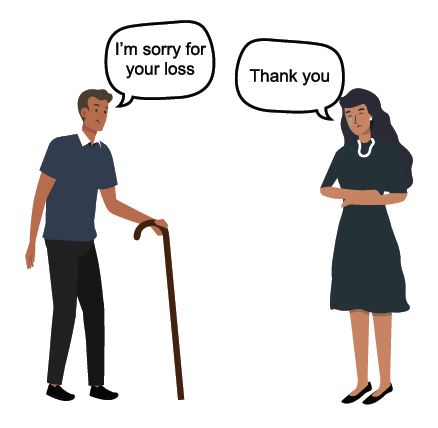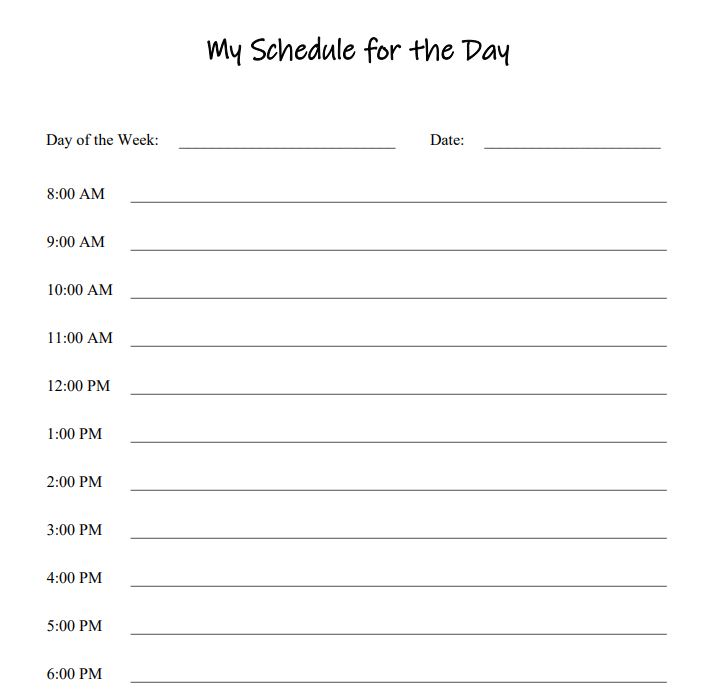Deciding Whether to Attend a Ritual Event
Deciding Whether to Attend a Ritual Event
It is common to feel anxious about whether to attend a funeral or memorial service.
- Sometimes feelings of grief, stress, or anxiety may arise during the service.
- It may be helpful to think about how you will respond to those feelings before you’re at the service.
- You may want to communicate your questions or concerns to a support person, family, friends, or the professional staff at the location.

Questions to Consider
The questions below may help you come up with a plan and feel more comfortable about attending a funeral or other ritual to honor someone who died:
- Where and when will the event take place? You may want to see a photo of the location or visit it ahead of time so you know what to expect.
- What will happen at the event?
- Who, if anyone, can serve as a support person for you at the event? If you are planning to attend alone, it may help to ask someone you trust to go along for support.
- What can you do to be involved in or help with the service?
- What will you do if you need a break? Where will you go? How will you let your support person know you need to take a break?
- Would you like to share your memories of the person who died?
- Where and with whom would you like to sit?
- If the casket is open, do you want to view the body of the person who has died?
- What do you plan to wear?
- Will you feel comfortable shaking hands with people or hugging people at the funeral? If not, consider how you will respond to these common gestures of sympathy.
- How will you express your sympathy to someone who is grieving the death of their loved one? You may want to practice what to say in advance.
- Would it be helpful to bring a soothing object or a quiet fidget tool to hold?
- If you want to leave the funeral before it ends, what is the most respectful way to do that? Who will you communicate with to let them know when you’re ready to leave?
- What will you do if things don’t go as you planned?
- Will you attend other activities after the funeral or memorial service, such as a reception or dinner?

Attending a Funeral or Memorial Service
What You May Want to Do
You can make choices about what you are comfortable doing at a funeral, memorial service, or other activities that are planned. If the person who died was especially close to you, you might want to be involved in the service. Some options are:
- sit at the front of the room to take part with others who loved the person,
- create a drawing or poem to include in the program,
- share a remembrance (sometimes called a eulogy) you have written, or
- watch and listen but not be directly a part of the service, or you might do a little of both.
It is important to communicate with those who support you about what your preferences are and how they can assist you.

What You May Want to Communicate
People often have a hard time talking about death and want to make you feel better. They rely on phrases that are commonly used because they aren’t sure exactly what to say.
Sometimes the things people say can be confusing. Many comments you may hear about death are unclear. If someone close to you has died, here are some comments you may hear:
- “I am sorry for your loss.” This may seem confusing because the person is not lost but has died.
- “They are in a better place.” This can be unclear because the person’s body may be in a casket, which doesn’t seem like a better place.
You can respond to these kinds of comments, even if they seem odd, by communicating, “Thank you” or “Thank you for being here.”
If you will be attending a funeral and feel unsure of what to say to someone who is grieving, it is always safe to communicate, “You have my condolences.” This shows that you understand the sadness they are likely to be feeling about their family member’s or friend’s death.
Insider jokes you may have enjoyed with the person who died while they were still living would not be understood or accepted at a funeral or memorial service. It would be better to share them with people who also enjoyed the insider jokes when the person who died was still alive.

Make a Written Plan for Attending
If you are participating in or attending a service, it may be helpful to prepare for these events by making a written plan. Planning ahead may reduce feelings that could become overwhelming such as stress, anxiety, frustration, or anger.
Think through the day and write down things that will happen. Here are some things that you may want to include in your plan:
- Dates, times, and places of the events.
- How long the events will last.
- Who will be at the events.
- How you will get to the events.
- How you will respond if changes have to be made to your written plan.
Share your plan with family, friends, or support person so they know when and how they can help you. They may be able to provide transportation, guidance, and companionship if you need or want it.
Bring your plan with you as a reminder of what will happen and what to do if you become uncomfortable. While at the event, it will be important for you to know what you will do if you begin to feel overwhelmed. If you have a support person, you can let them know it’s time to follow your plan.
Click the button below to make a schedule for attending ritual events.

Things You May Want to Do if You Don’t Attend a Ritual Event
If you decide not to go, or if you are prevented from going to a funeral or memorial service, you may want to:
- Request to watch a livestream video so you can see what is happening from a computer or phone.
- Consider attending some of the other events that might take place, such as a meal or reception.
- Hold your own small, private service to honor the person with a few family members or friends.
- Visit the funeral home or house of worship after the service is over.
You may decide about whether to attend the funeral on your own. However, if making the decision is difficult, communicate with your family or support person about making a choice that feels right for you. Use some of the questions above as a guide.
If it is important to your family or support people that you attend the funeral, even if you aren’t sure you want to go, let them know you’d like them to help you make a plan. Use the suggestions above so you and they will know when you will want to step out, take a break, or leave at certain time, if you need to.
Choose another topic:
